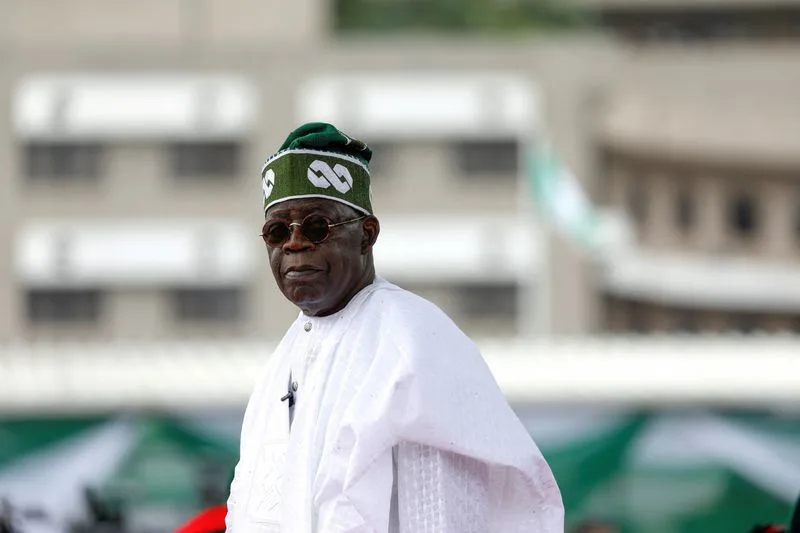
Rumours come true as Tinubu’s appointees run panic to survive reshuffle

Sopuruchi Onwuka
The rumours that cabinet reshuffle was underway became reality yesterday when the office of President Bola Tinubu churned out a new list of ministers most of whom were merely moved from one position to another in a strategy many analysts have considered hollow.

Although the changes in cabinet portfolios is perceived to host little or no strategic value in economic strategy of the government, it had sparked fears and subsequent self appraisal efforts in ministries and agencies as minsters tried to secure their positions. Some of them raised their performance poles by proxy while some ran solo. Consequently, some lost the race and some got swayed by the wind while others remained solid footed in their roles.
According to a table of the adjustments, Dr Yusuf Tanko Sunumu has been moved from the position of Minister of State for Education to Minister of State for Humanitarian Affairs and Poverty Reduction. Dr Morufu Olatunji Alausa has been moved from the position of health minister to education minister.
Also, Barr Bello Muhammad Goronyo is no longer Minster of State for Water Resources and Sanitation after he has been reassigned as Minister of State for Works. Abubakar Eshiokpekha Momoh is also removed from the post of Niger Delta Affairs Minister to that of Regional Development.
Other ministers who have been reassigned include Uba Maigari Ahmadu who moved from Minister of State for Steel Development to Minister of State for Regional Development. Dr Doris Uzoka-Anite moved from the post of Minister of Industry, Trade and Investment to the post of Mister of Finance. Sen John Owan Enoh is reassigned from the position of Minister of Sports Development to be in charge of Industry as Minister of State for Trade and Investments.
Iman Sulaiman-Ibrahim is pushed from the post of Minister of State for Police Affairs to Minister of Women Affairs; Ayodele Olawande is upgraded from Minister of State for Youth Development to Minister of Youth Development; and Dr Salako Iziaq Adekunle Adeboye is also reassigned from Minister of State for Environment to Minister of Health.
New minsters appointed into the cabinet of President Tinubu are Dr Nentawe Yilwatda who becomes Minister of Humanitarian Affairs and Poverty Reduction; Muhammadu Maigari Dingyadi who becomes Minister of Labour and Employment; Lady Bianca Odinaka Odumegwu-Ojukwu who becomes Minister of State for Foreign Affairs; and Dr Jumoke Oduwole who assumes office as Minister of Industry, Trade and Investments.
Others are Idi Mukhtar Maiha who takes office as Minister of Minister of Livestock Development; Yusuf Abdullahi Ata who is now Minister of State for Housing and Urban Development; and Dr Suwaiba Said Ahmad who takes over as Minister of State for Education.
Serving ministers who were shown the door are Barr Uju Ken-Ohananye who has been sacked as Minister of Women Affairs; Lola Ade-John who is sacked as Minister of Tourism; Prof Tahir Mamman who vacates the seat of Minister of Education; Abdullahi Muhammad Gwarzo who leaves the seat of Minister of State for Housing and Development; and Dr Jamila Bio Ibrahim who is sacked form the post of Minister of Youth Development.
Other cabinet members not mentioned in the list retained their current positions.
The Oracle Today reports that the cabinet reshuffle, attempt at a significant shift in Nigeria’s political landscape, especially with the appointment of Bianca Odumegwu-Ojukwu who is widely perceived as a vibrant member of the All Progressive Grand Alliance (APGA) founded by her late husband, Col Emeka Odumegwu-Ojukwu.
This shake-up is also perceived as an effort at enhancing efficiency at addressing the nation’s pressing socio-economic challenges as the weight of adverse economic impact of the government’s economic strategies continue to overheat the polity and spark increasing outrage.
President Tinubu has weathered a widespread protest that claimed 20 lives as youths across the country protested against bad governance and hunger in the first year of his government. He currently continues to carry the face of bad governance and his deleterious policies erode the value of the Naira and render once wealthy people poor.
The president had engaged consultants to evaluate the performance of his political appointees, and rumours that a cabinet reshuffle was imminent sparked off unusual public outings by ministers, regulators and other heads of parastatals in the government.
Almost every other head of government agency in the country had also staged activities that highly engaged the mass media as they all struggled to signal performance to the presidency.
The hasty moves when it was already palpable that the presidency was in consultation with different stakeholders on imminent cabinet reshuffle. It is also rumoured that
Analysts who spoke to The Oracle Today on the cabinet reshuffle point at the massive policy propositions that have inundated the president as the economy continues to plunge with the value if the Naira.
At the Annual Strategic Internationals Conference of the Association of Energy Correspondents of Nigeria, the Chief Executive Officer of Pinnacle Oil Limited, Robert Dickerman, had called on the Tinubu government to restore the confidence of international investors in the economy my rescuing the Naira from free fall.
Dickerman stated that the only credible signal for international investors is an economy that promises growth and returns on invested capital. He said government must work hard to restore integrity of the nation’s economy and its currency.
The Naira value against the dollar at the foreign exchange market has fallen from about N480 in early 2023 to current N1700. This would be the worst value of the local currency in the history of the country. It also stands as market in the performance of the All Progressive Congress (APC) which took over government from the Peoples Democratic Party (PDP) which handed a dollar value of N197 in 2015.
However, it is now clear whether President Tinubu’s cabinet reshuffle would stop with ministers only, but it is widely perceived to be a bold attempt to reset the administrative machinery of Nigeria’s government.
By removing underperforming ministers, bringing in fresh expertise, and retaining experienced hands, the administration has sent a signal of intent to tackle the nation’s challenges. The reshuffle signifies more than just a change of faces; it is a statement of intent, underscoring the administration’s commitment to steering Nigeria towards a path of stability, growth, and prosperity.
However, the true test of this reshuffle would be in the results it yields in the coming months, as Nigerians eagerly watch to see how these new changes translate into real progress on the ground.



